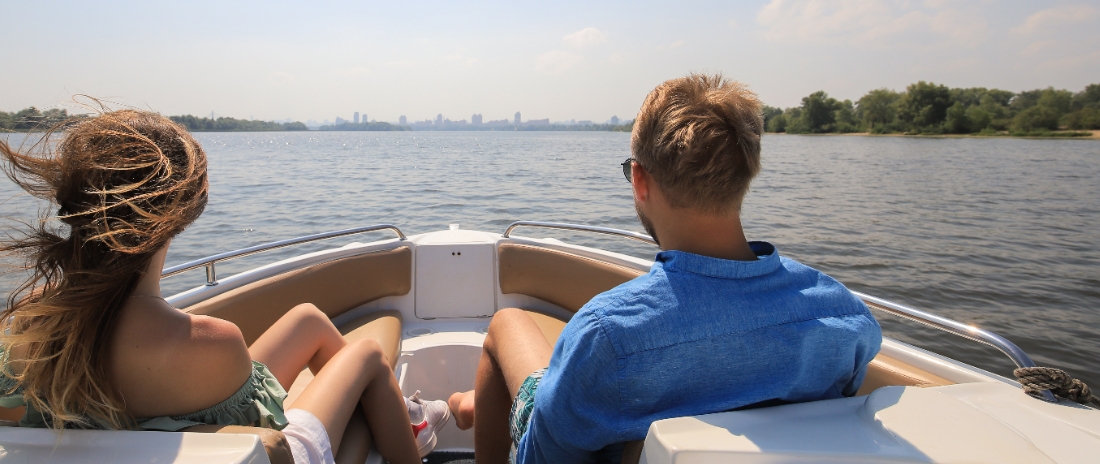New Florida Boating Laws Increase Rights for Boaters while also Increasing Penalties
On July 1st, 2025 almost 150 laws went into effect in Florida. The Boater Freedom Act expands boating rights, while Lucy’s Law addresses penalties for boating related crimes such as reckless operation and Boating Under the Influence (BUI). Since many Florida residents enjoy boating as a recreational aspect of their lives, it is important to understand the effects of these new laws and penalties.
What is The Boater’s Freedom act
SB 1388, known as The Boater Freedom Act, is a sweeping legislative measure designed to reduce government regulation of recreational boating in Florida. Among its provisions, it prevents law enforcement from stopping or boarding vessels without probable cause. The purpose of this is to allow Boaters the same basic rights that are afforded to drivers on Florida’s roads. The goal of this bill is that by increasing freedom for boaters, it will hopefully decrease law enforcement overreach and unnecessary stops for those who are using their boats completely lawfully.
The Bill also restricts state and local agencies from regulating watercraft based on their energy source, effectively barring any future environmental regulations that favor electric over gasoline-powered boats. This is to hopefully bolster the gasoline powered boat industry, to prevent the sale of traditional boats from being hindered by environmental restrictions. However this also removes potential regulatory hurdles for non-traditional or cleaner energy-powered boats.
Along with those provisions, the bill establishes a “Florida Freedom Boater” decal program and incentivizes clean marine manufacturers through lease waivers. It also authorizes funding for increased boat trailer parking and protects Florida’s springs through localized regulation.
What this Means for Boating Rights in Florida
For the everyday boater, SB 1388 means fewer inspections, less regulatory oversight, and freedom of choice in how vessels are powered. It supports a philosophy of deregulation, allowing for increased personal liberty on Florida’s waterways, particularly in how boaters power and operate their vessels. Environmental protections are more narrowly targeted, while general oversight is loosened.
Before SB 1388, a law enforcement officer patrolling the Intracoastal Waterway could spot a pontoon boat and board it without any specific reason. Even if the boat was operating completely lawfully and not doing anything wrong, the police were still in their power to stop the boat and board it.
Now, under SB 1388, that same officer cannot legally board the pontoon boat unless there is probable cause. For example, the officer would have to observe visible intoxication or reckless operation, in order to legally stop the boat. Routine inspections without a clear reason are now prohibited under this bill. Additionally, if the boat uses an unconventional energy source, like hydrogen or electric, no agency can restrict or deny its use based on that factor alone.
This bill, while controversial in some aspects, aims to protect the liberty of Florida’s boaters. Now, Florida’s boaters don’t have to worry about random unnecessary stops from law enforcement, when they are lawfully operating their vehicle.
What is Lucy’s Law
While SB 1388 aimed to provide boaters more freedom, HB 289 cracks down on reckless boating by increasing penalties. Lucy’s Law is a response to growing concerns about reckless and impaired boating in Florida. The bill was named after the late Lucy Fernandez, a 17 year old girl who was killed in a boating accident in 2022. Her death, along with other tragic boating incidents, led to public support for this law to be passed in an effort to crackdown on reckless and impaired boating within Florida's waters.
The law increases criminal penalties for reckless operation and establishes serious legal consequences when such behavior causes injury or death. It also mandates boating safety education, to hopefully reduce the risk of reckless boating in Florida's waters. The bill requires mandatory suspensions, prison terms, or educational requirements to those convicted of certain offenses, such as BUI, fleeing the scene of a boating accident, or providing false incident information.
How Does Lucy’s Law Change Penalties for Boating Offenses
This law sends a clear message: unsafe boating is no longer a slap-on-the-wrist offense. Boaters now face harsher penalties, including felony charges, if they cause harm or flee accident scenes. It also strengthens education requirements, particularly for younger or new boaters.
There are a variety of penalty increases for boating offenses under HB 289, which increase in severity depending on the offense. Previously, Reckless Operation of a Vessel was usually treated as a first degree misdemeanor, even if it resulted in property damage or injuries. Now, under HB 289, Reckless operation without causing an accident is now elevated to a second-degree misdemeanor. If it resulted in property damage or minor personal injury, it remains a first-degree misdemeanor, but if it leads to serious bodily injury, it has escalated to a third-degree felony.
Before Lucy’s Law, Leaving the scene of an accident resulting in only property damage was typically handled as a low-level misdemeanor. If the accident caused bodily injury, it was generally a misdemeanor. For example, if a recreational boater is speeding in a no-wake zone, hits another boat, injures a passenger, and flees the scene, they only face minor misdemeanor charges due to outdated reckless boating laws
After HB 289, however, leaving the scene causing property damage is now a second-degree misdemeanor. If the accident causes non-serious injury, it's now a third-degree felony. Causing serious bodily injury elevates the charge to a second-degree felony. If the accident caused death, including the death of an unborn child, the charge is now a first-degree felony with a mandatory minimum four-year prison sentence. For example, In the previous situation now under HB 289, the fleeing boater would face a third-degree felony for causing bodily injury and an additional charge for leaving the scene without rendering aid, potentially adding up to years in prison. If the accident resulted in death, they could face a first-degree felony and a minimum 4-year prison sentence.
This Bill also makes changes to how Boating Under the Influence (BUI) offenses are handled, specifically in cases of manslaughter. Before Lucy’s Law, BUI-related fatalities were prosecuted under loosely defined misdemeanor statutes or general homicide laws, often resulting in inconsistent sentencing. The bill establishes a clear mandatory minimum four-year prison sentence for BUI manslaughter, bringing the penalty in line with serious vehicle DUI offenses. It also expands the definition of vessel homicide to encompass the death of an unborn child due to reckless or impaired operation.
Outside of just criminal charges, HB 289 added a variety of other penalties to boating related offenses, requiring fines and boating education in certain cases. Before HB 289, boating education was only required for Floridians born after January 1, 1988, with no standardized penalties or educational mandates for infractions. However, after HB 289, anyone convicted of specific boating infractions must now complete an approved boating safety course and pay a $500 fine. The requirement for education now also applies to non-residents, those born before 1988 who commit reckless infractions, and those involved in accidents
Specific Penalties Under Lucy’s Law
- Reckless Operation not resulting in an accident (previously a first degree misdemeanor) is now a second degree misdemeanor
- Reckless Operation resulting in an accident that causes minor damage to a person or property is now a first degree misdemeanor
- Reckless Operation resulting in serious injury to someone is now a third degree felony
- Leaving the scene of a boating accident that resulted in property damage is now a second degree misdemeanor
- Leaving the scene of a boating accidentthat resulted in minor injury to another person is a third degree felony
- Leaving the scene of a boating accidentthat resulted in serious bodily injury is a second degree felony
- Leaving the scene of a boating accidentthat resulted in the death of a person or unborn child is now a first degree felony with a mandatory minimum prison sentence of 4 years.
- Providing false information about a boating accident is now a second degree misdemeanor
- Boating Under the Influence now always results in the suspension of the defendant’s driver’s licence.
- BUI manslaughter now must result in a 4 year mandatory minimum prison sentence
Hire a BUI Attorney in Florida
If you or a loved one has been charged with Boating Under the Influence, Reckless operation of a Vessel, BUI Manslaughter, or any other boating-related offense in Gainesville Florida, or the surrounding area, it is important to hire a criminal defense attorney immediately. The Galigani Law Firm defends people charged with criminal offenses such as DUI, BUI, and other driving and boating-related crimes throughout Central Florida.
Call (352) 375-0812 to request a free consultation.















Comments